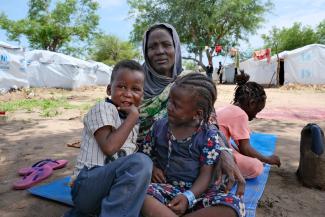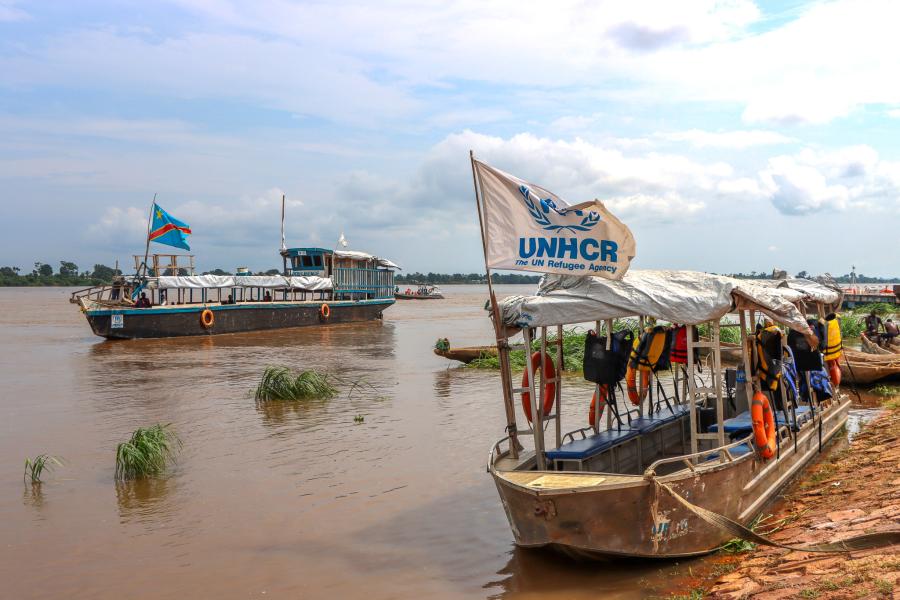Population figures | 2021 - 2025
2025 situation overview
Insecurity and the effects of climate change continue to drive displacement in the Central African Republic (CAR). There are over 455,000 IDPs – 17% live in displacement sites, while 83% live with host families. By the end of 2025, it is expected that this number will rise to over 550,000 IDPs with 250,000 requiring urgent assistance. UNHCR and partners have supported 147,200 IDPs to return to their home areas in 2024, and a further 150,000 IDPs are expected to return in 2025.
Recent reports indicate new displacements in some areas due to armed clashes, inter-communal conflicts, and flooding. According to testimonies from displaced people, gender-based violence continues to be among the top human rights abuses experienced by women and girls in the CAR. UNHCR and partner-led “Ma Mbi Si” services have provided assistance for survivors of gender-based violence in the CAR between 2021 and 2024, with a target number of 6,000 people to be supported through these services in 2025.
However, protection programmes are often underfunded, limiting the capacity of agencies like UNHCR and other humanitarian organizations to scale up their operations and respond to the evolving needs of vulnerable populations.
Over 676,000 Central African refugees are still in asylum countries. UNHCR has played a crucial role in facilitating the return of forcefully displaced people, be they refugees or IDPs. Since 2017, UNHCR has supported the voluntary repatriation of 49,000 Central African refugees, mainly from Cameroon, the Republic of the Congo (ROC) and the Democratic Republic of the Congo (DRC), with over 15,200 returning refugees between January and September 2024, and predicted to increase to up to 20,000 by the end of 2024. Returns are expected to continue in 2025, and over 40,000 refugees could be repatriated to the CAR during the year. The findings of a UNHCR survey in eastern Cameroon in early 2024 on refugees' intentions to repatriate showed that 80,000 refugees intend to return home.
To support sustainable responses and tackle long-standing challenges, UNHCR has initiated the CAR Solutions Support Platform (CAR-SSP) between CAR and its neighboring countries, Cameroon, Chad, the DRC, the ROC, South Sudan and Sudan, to galvanize political commitment and advocacy for solutions for forcibly displaced Central Africans. The Platform was launched on 31 October 2023 to create synergies with the seven signatory countries of the Yaoundé Declaration on Solutions in the context of Forced Displacement related to the Central African Republic Crisis marking the beginning of sub-regional and international cooperation for the well-being of displaced Central Africans.
As part of the CAR Solutions Support Platform and to advance the implementation of the Yaoundé Declaration’s recommendations, a development hub approach will be piloted in 2025 in communities receiving refugee returnees from Cameroon. In October 2024, the prefectural authorities, in collaboration with UNHCR, launched the construction of the first housing units. Consultations are underway to implement interventions in education, health, WASH, economic livelihoods, and peaceful coexistence in 2025.
Financial overview
In the Central African Republic, Sudanese refugees start new lives alongside host communities
By Josselin Brémaud and Xavier Bourgois in Birao, Central African Republic
After fleeing Sudan’s conflict, refugees are finding shelter, support, and safety in Korsi, a new neighbourhood in the northern city of Birao.
Read the story










